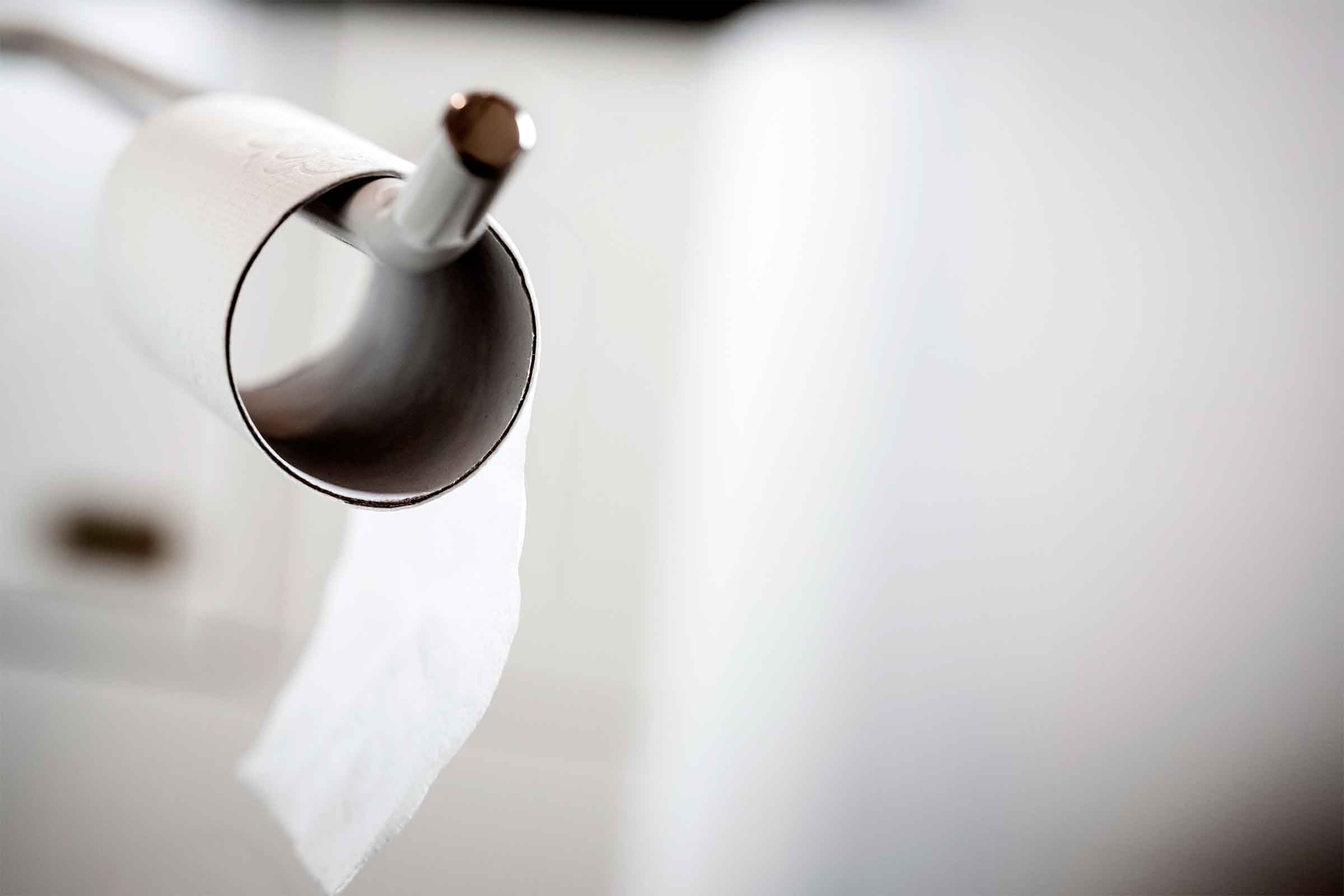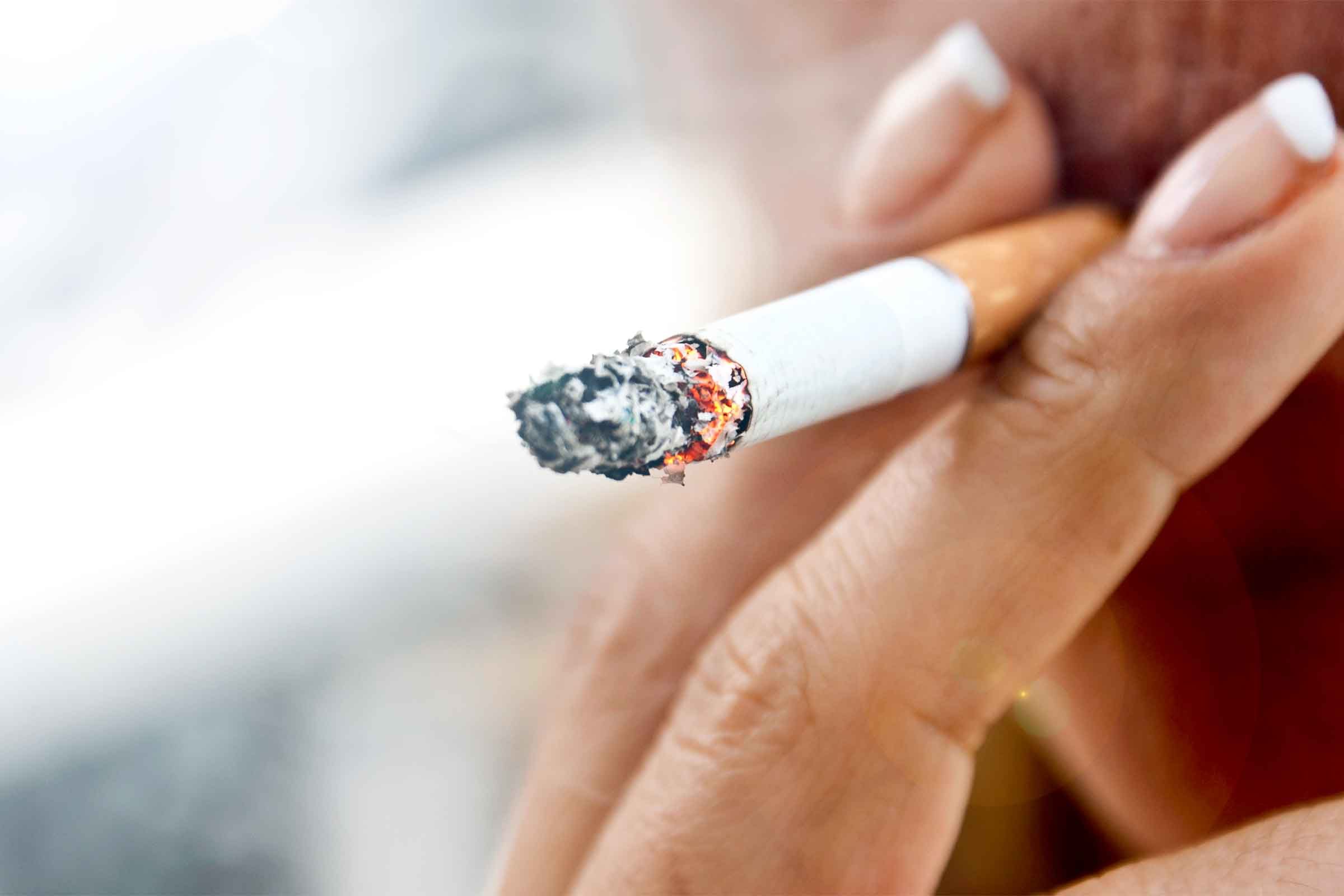
What is stress incontinence?
Stress incontinence occurs most often in women, and is a condition that results from having weak pelvic muscles. Those who suffer from stress incontinence experience involuntary urine leaks when pressure on the bladder suddenly increases, such as when you cough or laugh. Often, stress incontinence can be brought on by major changes to your body, which include pregnancy, menopause, and abdominal or pelvic surgery. These are things your bladder secretly wants to tell you.

Lose weight
If you’re experiencing stress incontinence, one of the first things a doctor may recommend is that you lose weight. By carrying extra weight on your abdomen, you put more pressure on your bladder, weakening it and contributing to the possibility of incontinence. Shed extra pounds to lessen the frequency of stress incontinence or stop it in its tracks. Here are 40 tips for fast, easy weight loss.

Avoid certain activities
Stress incontinence can often be dramatically reduced with the avoidance of certain physical activities that contribute to the condition. For example, if activities such as jogging or jumping cause unwanted bladder secretions, adjust your routine so you can avoid them. Experiment with different types of exercise and ways to stay active and to see which ones work best to keep you in shape and stop incontinence. Doctors often recommend activities with minimal impact, such as swimming or biking. Here’s how to limit incontinence brought on by physical activity.

Cut down on caffeine and alcohol
Caffeine and alcohol are bladder irritants and will cause you to produce more urine, which causes the bladder to fill up more quickly and increase the possibility of stress incontinence. Cut back on these fluids, as well as chocolate-y treats that may contain caffeine, to decrease the frequency of incontinence. These are signs you’re drinking too much coffee.

Don’t stop hydrating
Many people reason that the best way to avoid incontinence is to limit your fluid intake so that you have to use the bathroom less. However, this plan may actually end up backfiring. According to Tomas Griebling, MD, MPH, vice chair of the department of urology at the University of Kansas Medical Center in Kansas City, on everydayhealth.com. “When you don’t drink enough water, the urine becomes more concentrated and that can be irritating to the bladder and increase urgency.” Use these clever tricks to stay hydrated.

Go before you get the urge
If you know that you struggle with stress incontinence and have a rough idea of how frequently you need to use the bathroom (many doctors suggest keeping track and writing this down if you plan to consult a doctor), be aware of nearby facilities and plan bathroom breaks. If you usually feel an urge to urinate every two hours or so, try to use the bathroom every hour and a half or so that you avoid feeling an urge to go altogether. Also, try to go to the bathroom every time you leave your house, a store, or a restaurant, so you aren’t plagued by incontinence while in transit.

Do pelvic floor exercises
Pelvic floor exercises (commonly known as Kegels) can strengthen your pelvic muscles and improve your ability to control urinary urges. These muscles are the same ones you would use to stop urinating. The exercises can be effective for both women and men, and simply require you to squeeze or tighten pelvic floor muscles, then release and repeat. You can do them on your way to work, sitting at your desk, or at the dinner table.

Stop smoking
Smoking can be a cause of incontinence, and quitting the habit may reduce embarrassing bladder leaks. “Smoking damages the very small blood vessels in our bodies and causes tissue weakness,” says Yvonne Koch, MD, an assistant professor of urology at the University of Miami Miller School of Medicine, told everydayhealth.com. Smoking may also cause you to cough more, which can be a contributing factor of stress incontinence. Here are a few incredible ways your body will heal when you quit and the 23 best ways to quit smoking for good.

Talk to your doctor about medication
Certain medications can be effective in limiting or stopping stress incontinence. For example, anticholinergic medications can be a solution to uncontrollable urges. Anticholinergic medications block certain neurotransmitters in the parasympathetic nervous system, or the part of the autonomous nervous system responsible for creating pathways between the brain and the lower end of the spinal cord and internal organs. These types of medications can limit or stop bladder contractions that result in involuntary bladder leakage.

Think about devices
Different vaginal inserts can be discussed with your doctor as a method of dealing with unmanageable stress incontinence. These include a vaginal pessary that is inserted by a medical professional and supports your bladder, or a urethral insert that acts similarly to a tampon to prevent leakage. Additionally, some medical professionals may recommend using a tampon to deal with stress incontinence if the condition acts up during physical activity but is otherwise manageable. However, talk to your doctor before resorting to this measure.

Consider surgery
There are a few existing surgical options that can strengthen pelvic floor muscles after you’ve exhausted all other treatment options. Talk to your doctor about which of these procedures may be right for you.